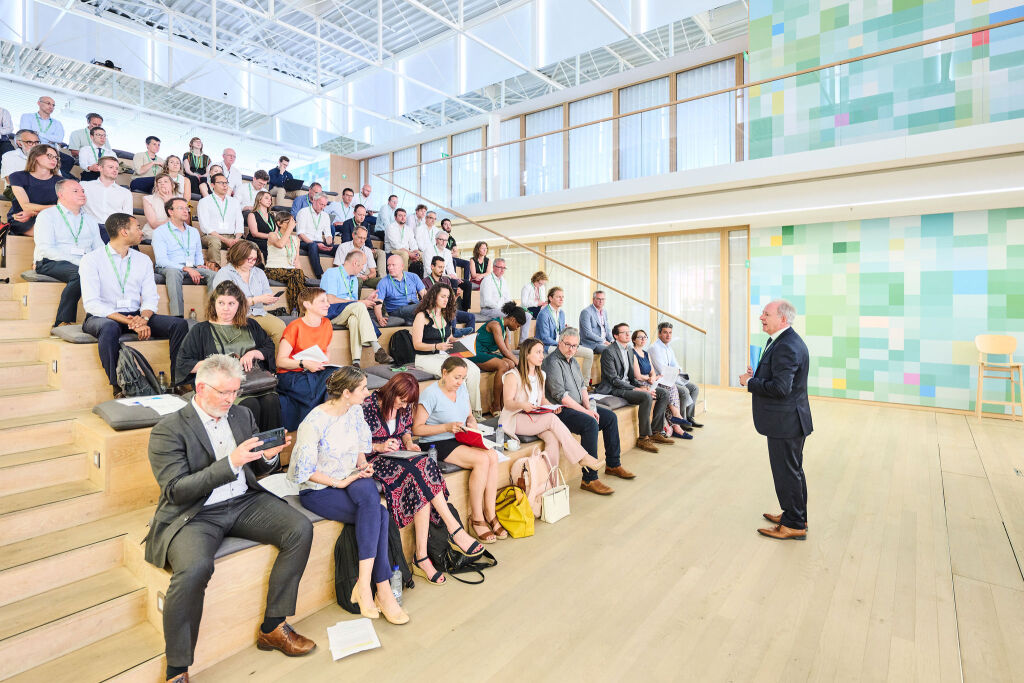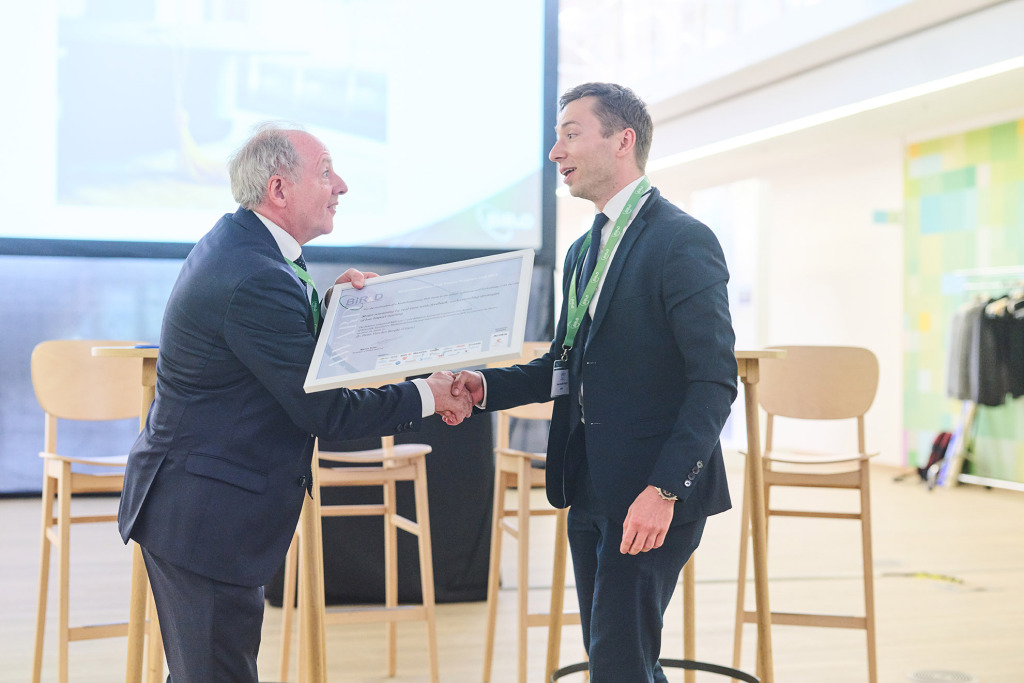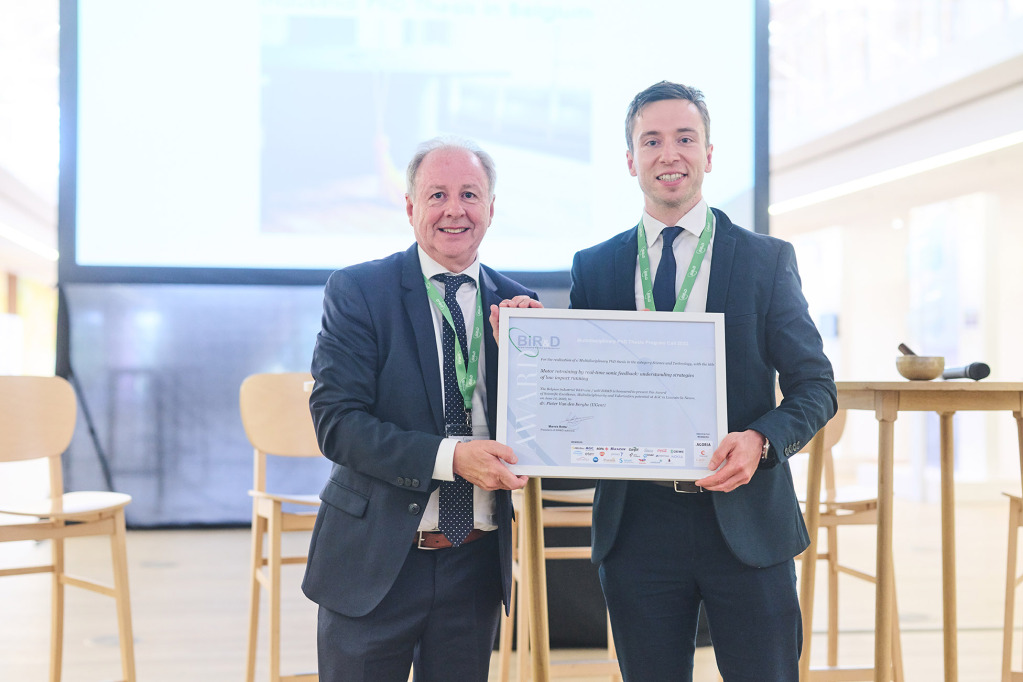The BiR&D Cross-Disciplinary PhD Thesis Awards are organized by the Belgian industrial Research and Development association and supported by funding agencies for scientific research in the Flemish and French Communities (FWO and FNRS). The 2023 Award in the category Health and Life Sciences was won by dr. Pieter Van den Berghe for his outstanding work on “Motor retraining by real-time sonic feedback: understanding strategies of low impact running”. The Award was based on three main factors: the excellent scientific level, the strong multidisciplinary character, and a high potential for industrialization.
Can you tell us something about your PhD thesis?
A PhD is the highest academic degree you can obtain and the research required to obtain mine crossed disciplines, which is often more challenging than focusing on just one specialized field. The multi-disciplinary research involved a strong collaboration between researchers from different fields, including sports biomechanists, musicologists and engineers. Together, we developed and validated a wearable device for impact reduction through the use of real-time, music-based biofeedback, and evaluated its effectiveness in a context of running retraining.
Running retraining may help to manage injury risk in distance running. Typically, running retraining with the use of real-time feedback on impact loading is done in a scientific laboratory which is expensive, time-consuming and impractical for real-world implementation. My work intended to transfer both the practice and the evaluation out of the lab. In one study, runners used the wearable device in a three-week retraining program outside the lab. We evaluated their impacts at the beginning and end of the program. This way we improved our understanding of lower impact running. It was interesting to see that many runners were able to reduce their impact within a single 20-minute session. After three weeks, the group of high-impact runners shifted to a pattern with less impacts. Amazing!

What makes the BiR&D Award so unique?
This Award recognizes a PhD thesis that has the potential for industrial valorization and societal relevance through original and cross-disciplinary contributions. Three things come to mind.
- Firstly, the cross-disciplinary PhD Thesis Award values teamwork across different disciplines. Working together has been very important in developing and researching the wearable audio feedback device. While I am proud to receive this prestigious award, it is thanks to a whole group of motivated people.
- Secondly, there’s also the societal relevance of our research. Many people exercise and go for a run. Running with music can be more pleasing and motivating than without. Combined with feedback on a biomechanics parameter, some see the potential for better injury risk management.
- A third important aspect of the Award is the high potential for industrialization. What started as fundamental research is being valorized. My former colleagues have started a spin-off called OnTracx, which builds on the earlier R&D and a patent application, contributing to the Belgium R&D ecosystem. I am thankful to the Belgian industrial R&D association and the FWO/FNRS funding agencies for this recognition.

Congrats again! How did you celebrate the win?
The laureates were invited to present their research at the BiR&D – Annual event earlier this year. It introduces a great opportunity where companies with major R&D operations in Belgium interact with university representatives and students. A special thanks to Dominique Coster and Marnix Botte for organizing the event for its members and the Belgian R&D ecosystem, which had a very attractive agenda, with the exchange of findings and insights from several sides. I had a wonderful time presenting my PhD research, drawing from my earlier experiences of presenting bits and pieces at prominent biomechanics conferences.
A thing about my BiR&D Award is that it came with prize money. Parts of the Award’s prize money went to the further exploration of industrial valorization (OnTracx), to a non-profit organization promoting exercise as medicine in Ghent for all (vzw sportaround), and to the Fonds Bashir Abdi Foundation that supports caregivers physically and mentally. A final incentive is given towards sharing the latest findings of research at the largest sports medicine conference of 2024 in the USA, and I look forward to presenting the final piece on our research project.

Music plays an important role in your research. Do you have a favorite music track?
I don’t have a favorite song, but at the moment I would pick “I’m Shipping Up To Boston” by the Dropkick Murphys. I am fortunate to have received a Harvard Medical School post-doctoral appointment for research at Spaulding Hospital Cambridge, Boston, USA, and a BAEF Honorary Fellowship for fostering friendship through its exchange program. Last week I received the news that a Strategic Institutional Partnership has been granted by Ghent University (Harvard SIP). 2023 has been a terrific year, let’s see what 2024 brings!
Victoris wishes Pieter a happy year’s end and an inspiring stay in the USA!
Doctoral Guidance Committee: Profs. Veerle Segers, Dirk De Clercq, Marc Leman, Matthieu Lenoir and Dr. Bastiaan Breine
Doctoral Examination Board: Profs. Allison Gruber, Jos Vanrenterghem, Peter Aerts, Maïté Verloigne, Pieter-Jan Maes and Jan Bourgois.
Download the research poster of Pieter’s PhD thesis here:


